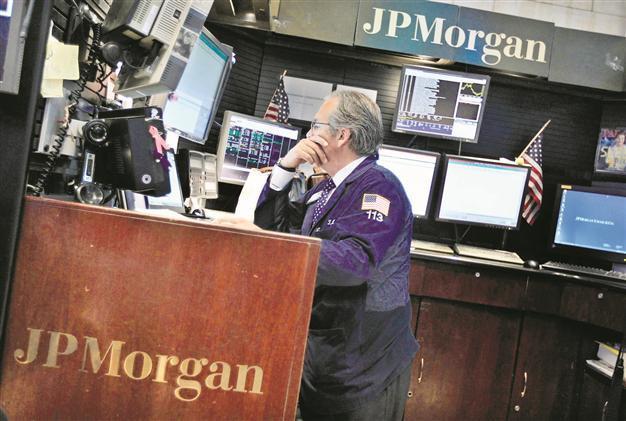Under siege, JPMorgan to quit physical commodities
NEW YORK - Reuters

REUTERS Photo
JPMorgan Chase & Co is exiting physical commodities trading, the bank said in a surprise statement, as Wall Street’s role in the trading of raw materials comes under unprecedented political and regulatory pressure.
After spending billions of dollars and five years building the banking world’s biggest commodity desk, JPMorgan said it would pursue “strategic alternatives” for its trading assets that stretch from Baltimore to Johor, and a global team dealing in everything from African crude oil to Chilean copper.
The firm will explore “a sale, spinoff or strategic partnership” of the physical business championed by commodities chief Blythe Masters, the architect of JPMorgan’s expansion in the sector and one of the most famous women on Wall Street. The bank said it will continue to trade in financial commodities such as derivatives and precious metals.
Pressured by tougher regulation and rising capital levels, JPMorgan joins other banks such as Barclays PLC and Deutsche Bank in a retreat that marks the end of an era in which investment banks across the world rushed to tap into volatile markets during a decade-long price boom.
But JPMorgan is the first big player to exit physical commodities entirely and attention will now turn to Morgan Stanley and Goldman Sachs, which face similar pressures.
Half of revenueThe announcement follows a week of intense scrutiny of Wall Street’s commodity operations, with U.S. lawmakers questioning whether banks should own warehouses and pipelines, and the U.S. Federal Reserve reviewing a landmark 2003 decision that allowed commercial banks to trade in physical markets.
JPMorgan’s own review, which began in February, concluded that the profits from the business were too slight to be worth the risks and costs of dealing with regulators in multiple jurisdictions, according to one person familiar with the matter.
One analyst estimated that physical trade accounted for half or more of overall commodities revenue.
